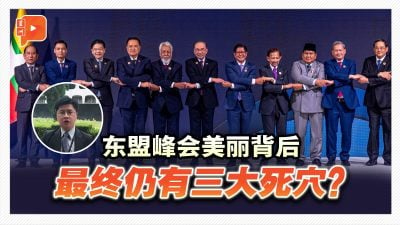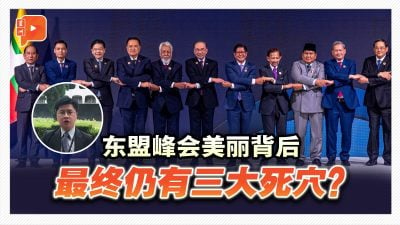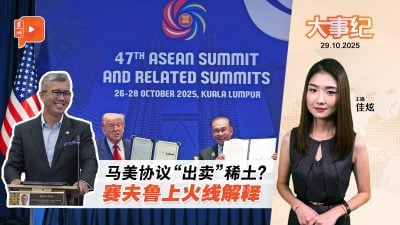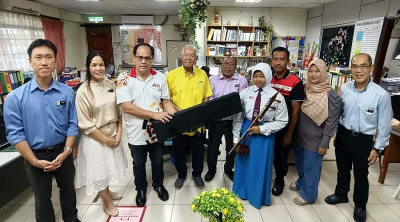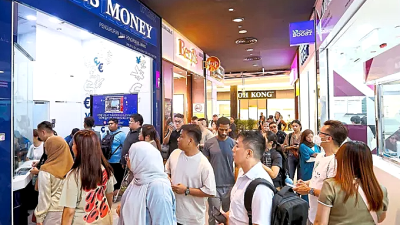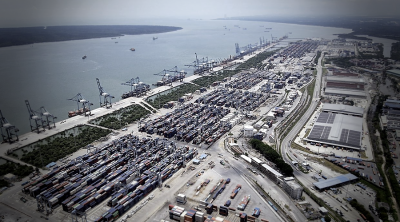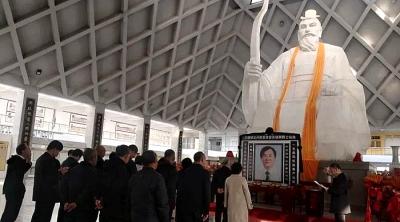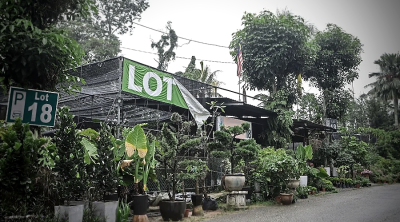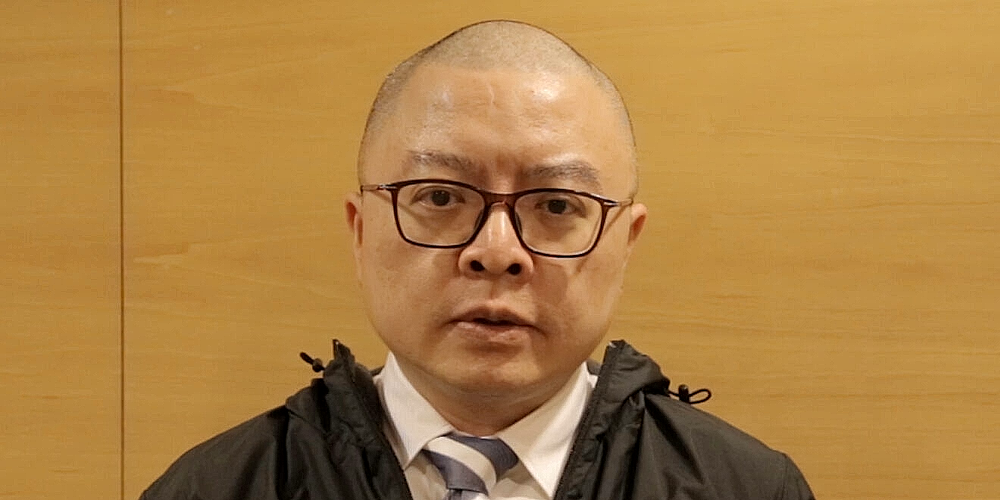
Over the last thirteen years, what was once known as the Arab Spring in 2011 has long soured. So much so that Arab Spring was known as an Arab Winter. Why?
Whether it was Libya or Tunisia in what the World Bank calls the Middle East and North Africa (MENA), what was once thought to be the cusp of a democratic flourish in these two regions saw immediate setbacks.
By 2012, the likes of Egypt, Syria, and Yemen were trapped in a downward spiral of violence.
All that changed on December 8, 2024: Damascus fell into the hands of the rebels of Hay ‘at Tahrir al-Sham (HTS).
It was a moment no one could have imagined just 24 hours earlier. Without prior warning or arrangements, Abu Mohammad al-Jolani, the leader of HTS, made a surprising visit to the Great Umayyad Mosque in Old Damascus in Syria.
According to BBC, the only Western news agency to have reported from Damascus, “seeing him from just a few metres away felt surreal”. Again, why?
To be sure, this mosque has long been a symbolic site where Bashar al-Assad and his late father, Hafez al-Assad, would often perform Eid prayers – a symbolic act for the rulers of the capital.
Yet, Bashar al-Assad had fallen and, together with him and his family, their half a century of iron grip on Syria.
The gun fires that rattled off into the air were deafening and jubilant. The air was filled with a sense of ebullience.
Notwithstanding the fact that “some US$300 billion, at the minimal”, according to Alistair Cooke, a top MENA expert, “is needed to help the reconstruction of Syria”. Indeed, in parts or in whole.
Regardless of what may come after, whether this is another unstable period that arches into the modern history of an unstable Syria indefinitely, the key is Syria has followed a plot that the world has actually been witnessing over the course of the last one year.
No. Not the genocide in Gaza or the war in Lebanon, for that matter, anything contiguous in the MENA, but event in Asia Indo Pacific and the European Union (EU). How?
In the former, Indonesians had conducted and completed a one-day election in February 2024 to give a conclusive victory to President Prabowo Subianto. At least conclusive enough to spare Prabowo a second-round run-off in April.
Syrians, at some point in the future, is poised to have an election to cement the rule of HTS without which it would be lacking on legitimacy.
Even the lifting of the US$10 million bounty of Mohammad Al Jolani, the leader of the HTS, by the US last week, isn’t enough.
Granted that Indonesia is the most pivotal power in the Indo-Asia Pacific region, with the widest geographical berth, where its wing span stretches from one end of France to the very border that connects Turkey and Syria in actual mileage, one is speaking of a seascape that extends from the Indian Ocean to the South Pacific. The led, led collectively by the South Pacific Forum (SPF) is increasing in geopolitical importance.
This is where the Association of Southeast Asian Nations (ASEAN) will have deeper connection with Timor-Leste as a full member of ASEAN by the middle or end of 2025. More context is needed to understand how events in Syria can benefit Prime Anwar Ibrahim of Malaysia and President Prabowo Subianto of Indonesia.
To begin with, Anwar Ibrahim has met with Prabowo five times in 2024 alone, all of which had face-to-face components between two of the closest leaders in the Straits of Malacca
Anwar also had four more meetings with Prime Minister Lawrence Wong of Singapore.
Indonesia, Malaysia and Singapore are three of the littoral states of the strategic Straits of Malacca. All three states are now at the fore of what Anwar called the Asian Renaissance.
The relevance of the fall of Damascus to Asian Renaissance is that even Syria, with the right backing, in this case Türkiye guiding HTS to rise up against Bashar al-Assad in the most surgical of manners, people’s revolution – for once – do not have to be full of blood and gore that one has come to witness in Gaza, Lebanon, West Bank, Iraq, Iran and Yemen.
In Japan, despite a low electoral turnout of less than 40 per cent in November 2024, where the Liberal Democratic Party (LDP) and its coalition partner lost hundreds of seats, Prime Minister Ishiba Shigeru was still safely elected as the minority Prime Minister of Japan.
In South Korea, when President Yoon Suk Yeol unilaterally declared then tried to impose the martial law in the late night of December 3, his antics were not tolerated by his own ruling party, the People’s Progressive Party (PPP), nor the opposition Democratic Party (DP).
Again, there was no blood shed. Not unlike how HTS came to power with the backing of Türkiye, a Strategic Sectoral Partner of ASEAN since 2010.
In South Korea, the martial law lasted no more than six hours, with millions of South Koreans calling for President Yoon’s impeachment, a case which is now in the hands of six judges of the Korean Supreme Court.
While the first impeachment failed on December 7, the DP promised to keep calling for a full impeachment by the Korean Supreme Court. The streets were not bloodied.
Meanwhile, the PPP had stripped Yoon of any powers to make any defence and foreign policy.
Further afield in South Asia, the ruling BJP in India failed to garner the 350 seats required in parliament. It, too, had to accept the will of the people, especially those from the south, to govern as a coalition government. Again, no massive violence.
In Pakistan, while the people’s unrest against the government has shown signs of social breakdown.
The goal of the protest is simple: to have Imran Khan, the former Prime Minister of Pakistan, released from political detention.
Anwar is a close friend of Imran, but neither Anwar nor Prabowo want to see more blood being spilled in Pakistan.
In Bangladesh, students have also risen up to get rid of the government of former Prime Minister Sheik Hasina. Again, without much bloodshed, if at all.
Two years prior in China, when the population could not tolerate the Zero-Covid policy anymore, the spontaneous outburst of their unhappiness in the streets, often singing their national anthem, also influenced the government to relent on the policy to allow a swift transition to normalcy.
For what it is worth, Anwar has been to all these countries.
More importantly, Anwar has formed a strong relationship with each of the leaders of these governments to encourage them to take Asian Renaissance seriously.
Invariably, one driven by creative social forces backed by enlightened or civilisational governance, one not entirely different from Malaysia’s concept of Madani (Civilised Polity).
It should be remembered that Anwar did not articulate the concept of Madani on a whim. Prabowo and Indonesians see eye-to-eye on the importance of “Masyarakat Sivil” (civil society), which is another tag for Madani since Anwar spoke of this concept in Indonesia in 1994.
If anything, “Madani” is based on the historical example of how Prophet Muhammad had once governed Medina prior to returning to Mecca in triumph.
No one was persecuted in Mecca. The takeover was peaceful, just and civil. To guide Mecca away from “jahiliyah” or widespread ignorance. Education and persuasion were two methods prioritised by Prophet Muhammad.
In Medina, Prophet Muhammad set the necessary rules and regulations in the early part of the 7th century A.D., a full six hundred years before Magna Carta in 1215 A.D.
Magna Carta was issued in June 1215 and was the first document to put into writing the principle that the king and his government were not above the law.
Syria under HTS, indeed, the tutelage of Türkiye, is trying to do the same as this is written.
Prime among the rule of law is to prevent the king or any extra-judicial authorities from exploiting their power and to place limits of royal authority by establishing law as a power in itself.
If one were to refer to the EU, the same human agency can be seen. Take the EU parliamentary elections in July 2024 for example.
In the EU, while emotions were running high between the political left and right, all 27 member states were able to have their EU parliamentary elections without any incidents too in 2024.
When the United Kingdom and France proceeded to have their parliamentary elections in July and August respectively, both proceeded without any incidents too.
Again, the agency of the vox populi was at work in the EU, just as it did in the UK, where the Labour Party roamed to the massive electoral landslide in July.
When Romania’s first round parliamentary and presidency were deemed to have been influenced by Russia, the results were annulled to allow a new one to proceed in December.
In the US, the election of November 5 has allowed Donald Trump and the Republican Party to return triumphantly in the White House, Senate, and the House of Representatives.
While Syria has a long way to go before the world can acknowledge it as a stable and prosperous polity, Türkiye Foreign Minister Hakan Fidan affirmed at the Doha Forum on December 8 that all efforts are now underway to work with the Astana Group of Countries as well as the United Nations and the US. Indeed, to ensure the stabilisation of Syria.
The three countries sponsoring the Astana process, along with five Arab states, have called for the launch of a political process in Syria based on the UN Security Council Resolution 2254.
The call came in a joint statement issued on December 7, following a meeting in Doha, Qatar, attended by the foreign ministers of Egypt, Saudi Arabia, Iraq, Jordan and Qatar.
The Astana process was represented by the foreign ministers of Türkiye and Iran, along with a representative from Russia.
As a legal entity, ASEAN, whose chairman is now Anwar, there is no doubt that he would like all ten countries of ASEAN, indeed the eleven Dialogue Partners of ASEAN, to back Syria to become a functional and civilised polity again.
HTS should take heed of the current goodwill that it has from the world rather than to fall into the trap of extremist religious and tribal, sectarian ideology witnessed in the likes of Afghanistan.
When ASEAN and Gulf Cooperation Council (GCC) have their summit in Kuala Lumpur again in 2025, the top leaders of Australia, China, India, Japan, South Korea and the US, all of which are the Comprehensive Strategic Partners of ASEAN and East Asian Summit (EAS), must be in Kuala to strengthen Syria and to put an end to more crisis in West Asia, otherwise known as the Middle East.
President Recep Tayyip Erdogan has started the process. Anwar, a close friend and equal of the President of Türkiye, has one year to work with all sides to deliver a global resurgence in civility. For what it is worth, to jointly meet the planetary crisis of climate change.
Whether this be in the Global North or South. In this vein, ASEAN gained too when Bashar Assad is toppled in Syria, and HTS is back in the saddled closely monitored by Türkiye.
Indonesia gains from the collapse of Syria too since Anwar would be at the side to work with Prabowo to urge ASEAN to nudge the world to make Syria comply with the UN Resolution 2254, which is welcome by Russia and China, too.
((Dr Phar Kim Beng is Expert Committee Member of the Centre of Regional Strategic Studies, CROSS, and Professor of ASEAN Studies at the International Islamic University of Malaysia.)
ADVERTISEMENT
ADVERTISEMENT







